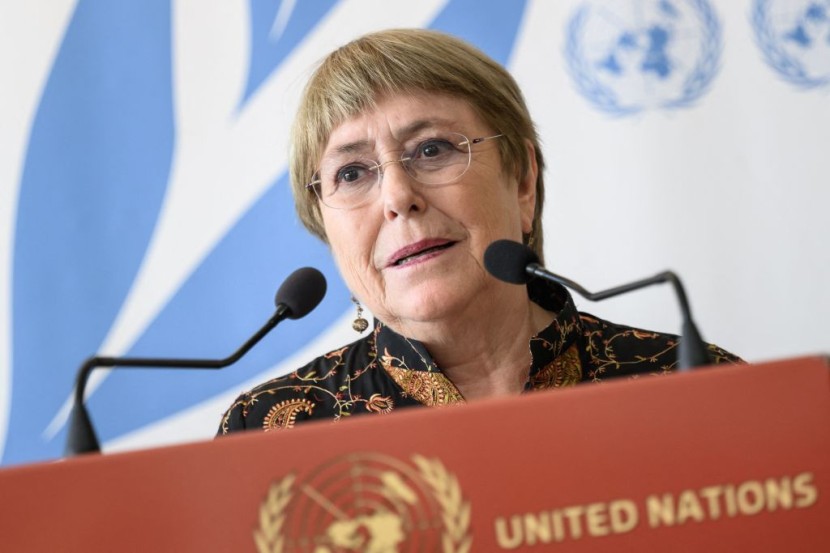
United Nations human rights chief Michelle Bachelet announced that she would not seek a second four-year term when her present one ends in August.
Bachelet, 70, traveled to China last month. Rights groups and several Western nations blasted her for failing to intervene against reported abuses against Uighurs and other Muslim minorities in Xinjiang, China's western province.
In her opening address to the UN's summer session, Bachelet said: "As my term as high commissioner draws to a close, this council's milestone fiftieth session will be the last which I brief." though she did not provide further explanation, as per a report from Al Jazeera.
Some diplomats had anticipated Bachelet, a former Chilean president close to UN Secretary-General Antonio Guterres, to remain on, hence her statement has put an end to weeks of speculation.
Following Bachelet's six-day trip to China, during which she met with President Xi Jinping and other high officials, Guterres, who chose the UN rights chief, recently reaffirmed his support for her.
China Trip Fallout
Bachelet did not give a reason for her departure, although criticism of her response to China's persecution of Uyghurs and other Muslim minorities in western Xinjiang has clouded her term.
Beijing has been chastised for reportedly illegally detaining Muslim minorities in Xinjiang detention camps and subjecting them to forced labor. China dismisses the allegations, claiming they were placed in "educational camps."
The UN official visited China last month and met with President Xi Jinping and other top officials. The visit was the first by a UN human rights chief in 17 years.
Critics claimed Bachelet did not apply enough pressure on Chinese President Xi Jinping on the issue of human rights in Xinjiang.
According to human rights organizations, Bachelet failed to speak out about the alleged atrocities during her visit.
Human Rights Watch's executive director, Kenneth Roth, termed Bachelet's trip to China an "unmitigated disaster" and criticized her for using the Chinese term "VETCs," which stands for vocational education and training centers, to portray mass incarceration facilities in Xinjiang, according to a report from France24.
Bachelet used the term again in her Monday speech. However, she expressed alarm over "patterns of abuse" targeting Muslim minorities in Xinjiang and noted that her office was working on an updated assessment of the situation.
Global Concerns Raised
Bachelet highlighted alarm about inflation, rising food insecurity, and climate change in her Monday presentation to the Geneva-based council.
The UN Rights chief stated, "I urge us to marshal a stronger sense of social responsibility and ambition that prioritizes people, their protection, and their rights."
She also raised fears about specific countries, such as a potentially serious COVID-19 outbreak in North Korea. She urged the international community to "relax sanctions" so that aid might reach the country's people, per DW.
Bachelet also expressed concern over the arbitrary detention in Russia of a substantial number of activists opposing President Vladimir Putin's war in Ukraine.
Moreover, the UN rights chief noted setbacks in women's rights and limits on abortion, pointing to the United States, where the Supreme Court is anticipated to overturn a historic rule on nationwide abortion rights.
Related Article: World's Stockpile of Nuclear Weapons To Rise for the First Time Since Cold War; Experts Raises Concern








